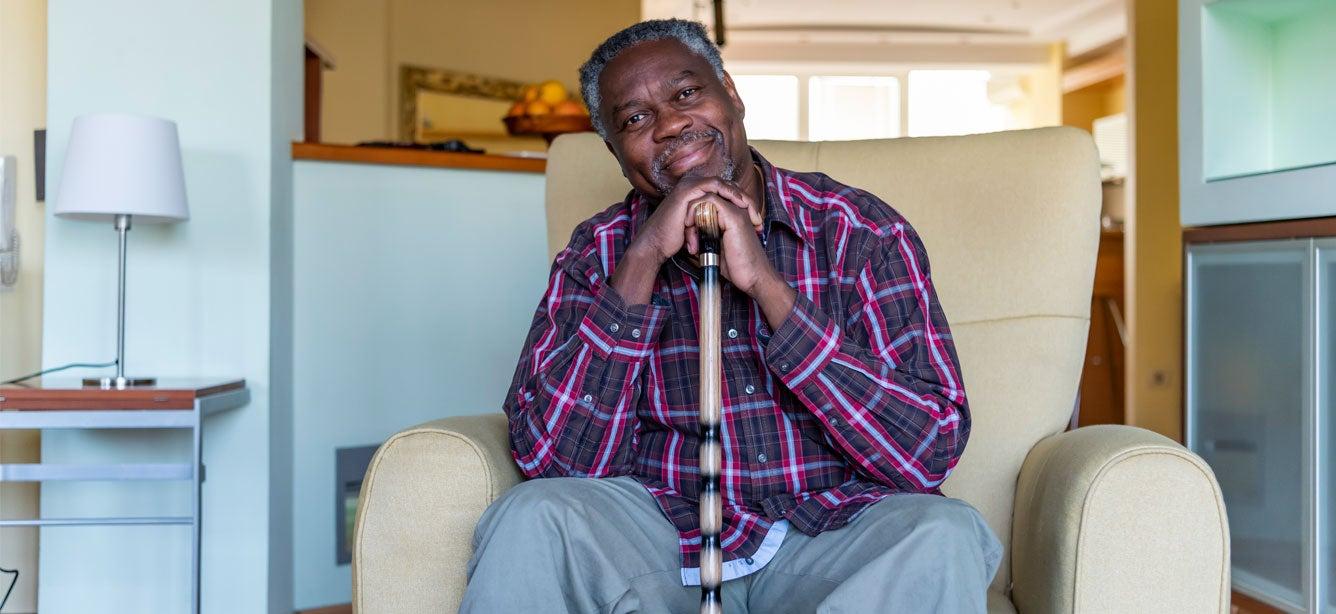
If you need extra cash to pay for healthcare costs and other needs during retirement, you may be wondering if a reverse mortgage is the answer. Taking out a reverse mortgage is a big decision. Before you act, it's important to learn more about what a reverse mortgage is and how it works.
What is a reverse mortgage?
A reverse mortgage is a unique type of loan for homeowners aged 62 and older. It lets you convert a portion of the equity in your home into cash without having to sell it or make additional monthly payments. But unlike a conventional home equity loan or second mortgage, you don’t have to repay the loan until you either no longer use the home as your primary residence—or you fail to meet the loan obligations.
Reverse mortgages are designed for older adults who already own a home. They've either paid it off completely or have significant equity—at least 50% of the property's value.
There are different types of reverse mortgages with various payment methods, but most are Home Equity Conversion Mortgages (HECM). These loans are insured by the Federal Housing Administration (FHA). The FHA maintains strict reverse mortgage requirements to help protect both borrowers and lenders.
How does a reverse mortgage work?
A reverse mortgage is a twist on a traditional mortgage, where you take out a loan and pay your lender each month. With a reverse mortgage, you receive a loan in which you borrow against the equity in your home. There are no monthly principal and interest payments. Instead, the loan is converted into monthly payments to you. This money can then be used to pay off debt or fund essential cost-of-living expenses such as food and medical bills. Reverse mortgages generally are not used for vacations or other "fun" expenses.
Some things to note about reverse mortgages:
- The monthly payments you receive are usually tax-free.
- A reverse mortgage should not affect your Medicare or Social Security benefits.
- The loan typically does not have to be repaid until 6 months after the last surviving borrower dies, sells the home, or no longer uses the home as a primary residence.
What are the rules of reverse mortgages?
The FHA has specific reverse mortgage requirements that borrowers must meet. The youngest borrower must be at least 62 years old. As with any loan, certain financial criteria must be met. In addition, you must:
- Own your home outright or have a low mortgage balance (i.e., significant equity in your home). Your home also has to meet FHA property standards. If it doesn't, your lender will advise what repairs must be made before you can take out a reverse mortgage.
- Use your home as a primary residence, meaning you spend the majority of your time there.
- Not be delinquent on any federal debt (e.g., federal income taxes).
- Agree to put aside some of your reverse mortgage funds at closing—or demonstrate that you have enough savings—to pay for ongoing costs related to your home.
In addition, to qualify for an HECM, you must receive reverse mortgage counseling from a HUD-approved counseling agency. Reverse mortgage counselors are trained and approved by HUD to provide unbiased information to older adults. When you meet with one, they’ll explain alternatives to an HECM, reverse mortgage costs, payment plan options, and more.
Who owns the house in a reverse mortgage?
You do. In a reverse mortgage, you keep the title to your home and maintain ownership. That means you are still responsible for property taxes, homeowner's insurance, utilities, repairs, maintenance, and other expenses.
Are reverse mortgages a scam?
Reverse mortgages themselves are not a scam, but some unscrupulous companies use them to exploit consumers. The FHA maintains a list of legitimate reverse mortgage lenders that offer HECM loans. Check your lender at HUD.
Can you lose your house with a reverse mortgage?
Yes, as with a traditional mortgage, you can potentially lose your home to foreclosure with a reverse mortgage. This only happens under certain circumstances, such as:
- You stop paying property taxes and homeowner's insurance.
- You stop using your home as a primary residence, whether you pass away, move, sell the home, or are away from your home for a long period of time.
- You fail to meet FHA requirements in maintaining the home.
What is the downside of a reverse mortgage?
A reverse mortgage can be a useful tool in ensuring a more secure retirement and staying in your home as you age. However, there are some drawbacks to consider. Here are a few:
- There are fees involved. Although you receive payments with a reverse mortgage, it's not free. In addition to property taxes, maintenance, and other expenses, you may have to pay closing costs and servicing fees over the course of the loan. Some lenders also charge mortgage insurance premiums. The National Reverse Mortgage Lender Association (NRMLA) has a reverse mortgage calculator to help you get an idea of your costs. Fees vary by lender, so if you’re considering a reverse mortgage, be sure to shop around.
- You pay more over time. Once your reverse mortgage payments start, interest is added onto your balance each month. The amount you owe increases as this interest builds up during the life of the loan.
- You may have less to leave to your heirs. With a reverse mortgage, you'll usually need to sell your home in order to repay the loan. After you pass away, your children or other heirs will have to pay either the full loan balance or 95% of your home's appraised value (whichever is less). Additionally, reverse mortgages chip away at the equity in your home, resulting in a lower profit when it’s sold.
- Your retirement benefits might be affected. Having a reverse mortgage could make you ineligible for need-based government programs such as Supplemental Security Income (SSI).
- You can't deduct the interest on your taxes. Unlike with conventional mortgages, the interest on reverse mortgages is not deductible on your income tax returns until you've paid off the loan (partially or in full).
Are reverse mortgages really worth it?
Taking out a reverse mortgage is not right for everyone—but for some older adults, it can be worthwhile. You may be a good candidate for a reverse mortgage if your home is steadily increasing in value and you plan to live there for a long time. It's also important that you have plenty of cash flow to cover the costs of your home and stay current on your reverse mortgage.
Download our guide to reverse mortgages and more
If you're an older homeowner who wants to stay in your home as you age, we're here to help. Explore your options for tapping into your home’s equity with our free, federally approved consumer guide: Use Your Home to Stay at Home©. Learn more and download our booklet now.



